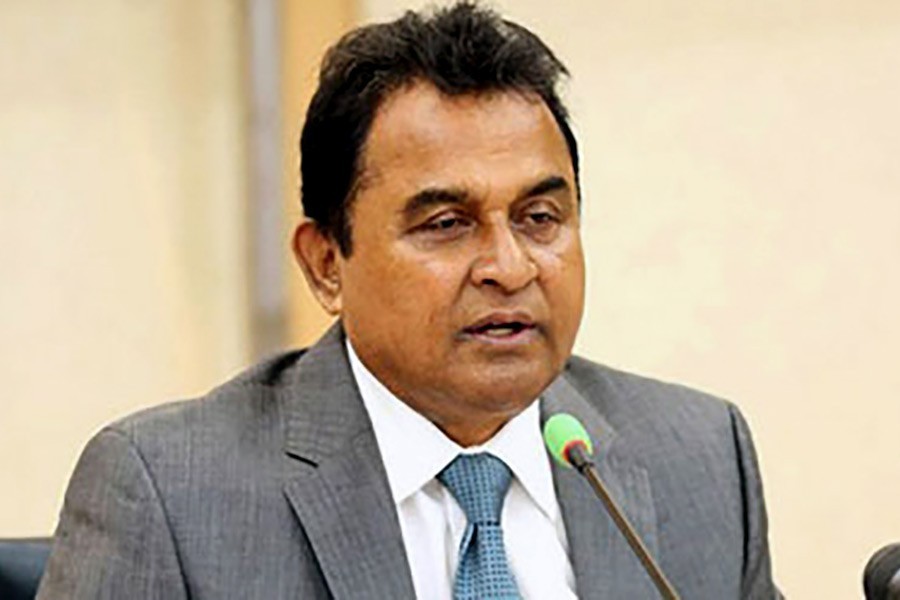Finance Minister AHM Mustafa Kamal dismisses any link of the price hike of fertiliser and planned raise in prices of energy and power with conditions binding a proposed IMF loan, as he vows early economic stability.
Many media outlets in the last few days reported that the International Monetary Fund (IMF) cited the need for lowering subsidies on energy, power, and fertiliser, including the amounts allocated in the current fiscal budget.
The Ministry of Finance last week sent a letter to the IMF seeking loans. Some say the government expects US$4.5 billion from the international lender as budget support amid dwindling state of foreign-currency reserves.
"IMF did not place any such condition to us," the minister told newsmen Wednesday in reply to a query after a virtual meeting of the cabinet committee on government purchase.
Mr Kamal said newsmen wrote these things in newspapers but he won't answer regarding such matters.
"Why you people are saying this I don't know. From where you people are getting these I don't know. What media people are doing on these are not good," said the finance minister.
This past Monday the government raised urea fertiliser price by Tk 6.0 per kilogram and so farmers will have to pay Tk 22 to get one-kg fertiliser. The measure involving the vital sector that worked as a saviour during the crisis time has stirred up uproar.
Various farmers' bodies and political parties staged demonstrations Wednesday in the capital and many parts of the country in protest against the price hike of urea-a vital farm input in raising crop yield.
They demanded reinstating the previous price of the fertiliser for the sake of farming and farmers.
Replying to another query, the minister said the government always expects remittance inflow through official channels, as it (forex) has huge benefit for the country and the people.
"If anyone brings home taka (money) through 'hundi', it becomes black money. If regulatory authority someday asks them about the source of money, they won't be able to answer," he said.
Mr Kamal says hundi still exists and people send money from abroad through that medium.
"When I was in planning ministry, I studied and found that the amounts of inflow of remittance through official channel and hundi are almost same. That time 51-percent remittance came through official channel while by hundi it was 49 per cent," he adds.
The finance minister wonders why all the money cannot be brought through official channel. "Remitters are given incentives and recognition for sending money legally."
On another query, the minister admitted that corrupt practises are taking place in Bangladesh but he has no idea about the degree of corruption. "Otherwise why export is lower than import?" He poses the question that implies wide-scale scepticism about under-invoicing and over-invoicing: a twin trade trick to which capital flight from a country is attributed
He said in recent days the government noticed that import bills are huge but export receipts are not in that much volume. "So, we assume that these are not assessed properly or the assessments are done inappropriately," says the finance minister, who walks a tightrope in managing gaping balance-of-payments deficits and a consequent strain on Bangladesh's foreign-exchange reserves that purportedly prompts the government to seek the aforesaid IMF credit.
He informs the press that the government has asked the various regulatory agencies to do the assessment properly to check the mismatch.
"If import, price, quantity are overstated, the motive is only one-sending money abroad. We have to stop it," says the finance minister, meaning the siphoning off money.
As regards evident volatility on different economic fronts, like currency devaluation, price rises and so, he feels that a major task for the government now is bringing stability in the economy. "Very soon we will get back to the old track of the economy."
On the rate of inflation, the minister said when his government came to power in 2008-09, inflation was 12.3 per cent. After a long time of stability, the rate of inflation now crossed 7.0 per cent.
"The rate of inflation will come under control in a month or two," he hopes.


